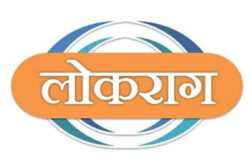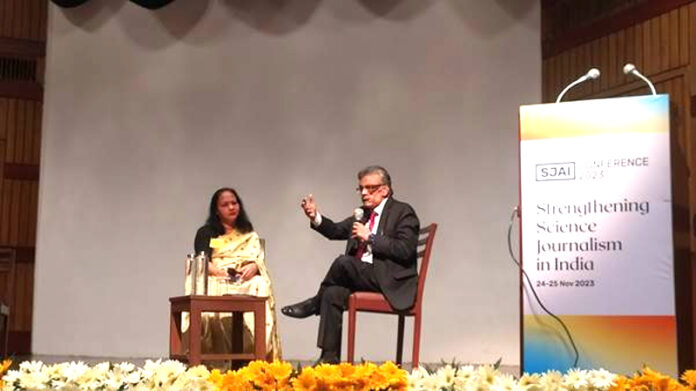Dr Akhilesh Gupta, Senior Advisor, Department of Science and Technology and Secretary, Science and Engineering Research Board (SERB) highlighted that Anusandhan National Research Foundation (ANRF) will bring major transformational changes in the way research is supported and done in India, at a conference of science journalists organised in New Delhi on November 24, 2023.
“It will bring synergy between government, academia and private sector in science research and elevate its importance to the global level, Dr Gupta said during his fireside chat at the conference of Science Journalists Association of India (SJAI) on strengthening science journalism in India.
He added that the country currently excels in basic science education, with most Indian R&D institutes focusing on fundamental science. The ANRF aims to support innovation and translational research by leveraging private-sector contributions alongside government funding. The three key components of the Anusandhan National Research Foundation (ANRF) include continuing with the SERB mode funding without any disruption, allocating additional funds for profound scale research, and providing innovation funding for public-private partnerships and industry collaborations.
He pointed out that the areas of top priority are Climate change, Clean Energy, Semiconductor, Artificial Intelligence (AI), robotic cyber security, Quantum, and other new and emerging areas were getting private sector to invest R&D will help blending of govt support with private support for research.
“India’s scientific ecosystem stands out, with premier institutions like IITs and IISERs exhibiting high research quality, advanced infrastructure, and faculty expertise. While state-level universities have substantial potential with their army of young researchers, there is a need for attention and development. It is this potential that ANRF will try to harness,” Dr Gupta elaborated.
With the new structure of ANRF, scientific research in India will take a quantum jump in terms of scale, scope and quality.
He also stressed that as per the draft Science, Technology and Innovation Policy under consideration, it is proposed that every institute establishes a science communication wing to address concerns about potential misquotations, focusing on educating the media on scientific matters.

















